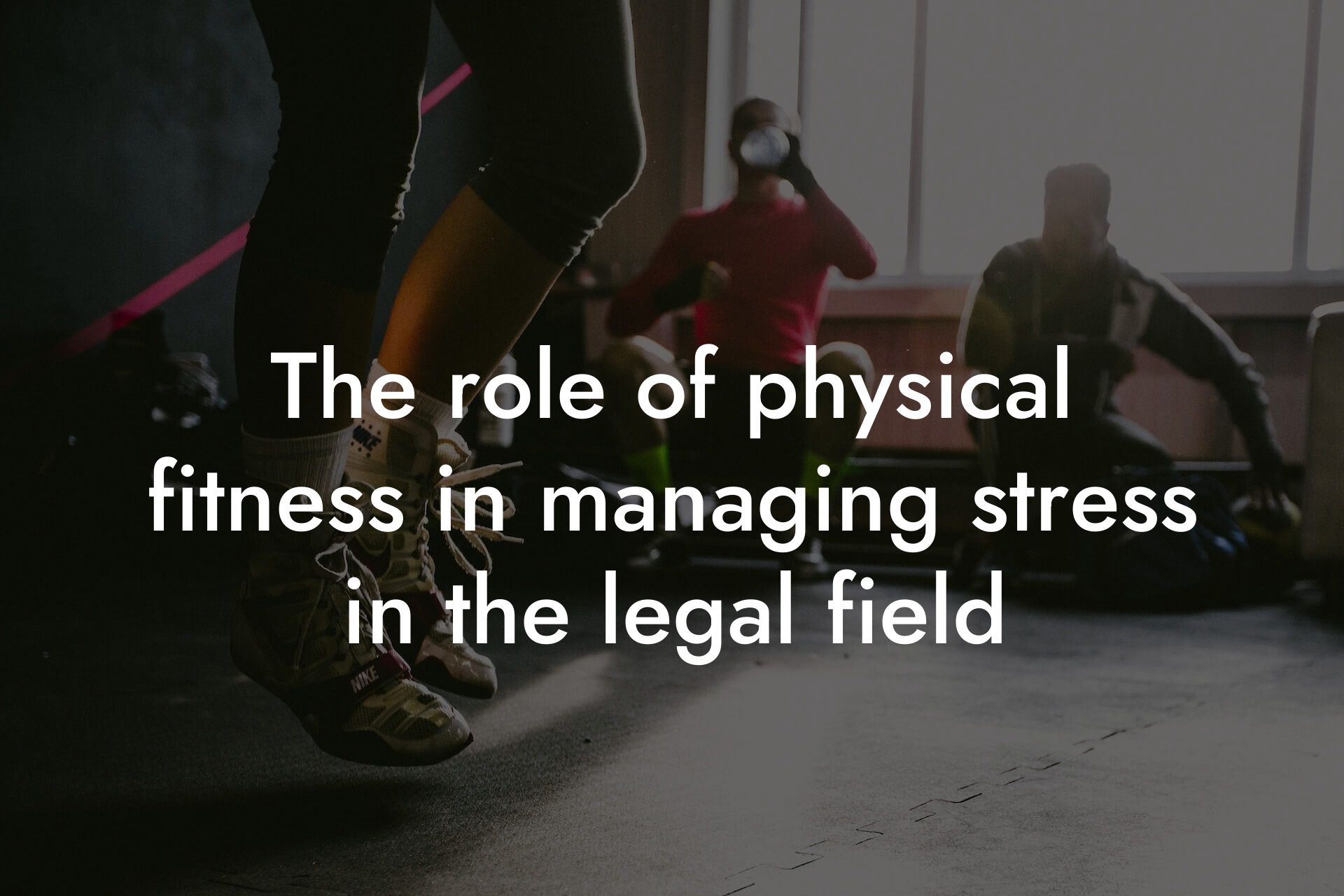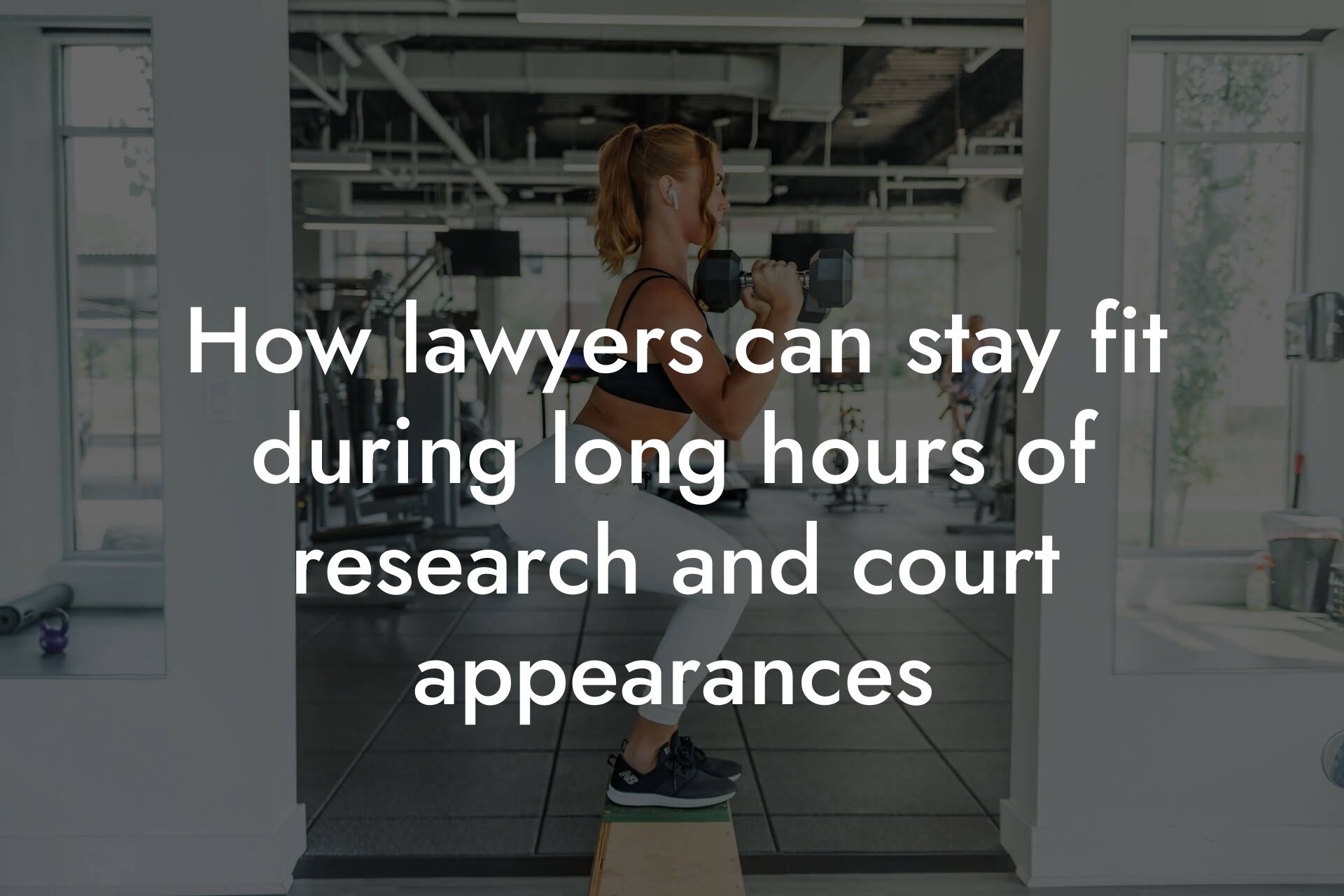As a high-earning professional in the legal industry, you understand the importance of optimal cognitive function to excel in your career. What you may not know is that your body composition plays a significant role in your brain's ability to focus, concentrate, and make sound decisions. In this article, we'll delve into the intricate relationship between body composition and cognitive function, and how it affects law professionals like you.
Table of Contents
- What is Body Composition?
- The Link Between Body Composition and Cognitive Function
- The Role of Visceral Fat in Cognitive Decline
- The Impact of Body Composition on Neuroplasticity
- The Effects of Body Composition on Stress and Anxiety
- How DEXA Scanning Can Help Law Professionals
- Practical Tips for Improving Body Composition and Cognitive Function
- Frequently Asked Questions
What is Body Composition?
Body composition refers to the percentage of fat and lean mass in your body. It's a critical aspect of overall health, as it affects various physiological processes, including metabolism, energy levels, and even cognitive function. A healthy body composition is characterized by a balanced ratio of fat mass to lean mass, with a focus on maintaining a low percentage of body fat.
The Link Between Body Composition and Cognitive Function
Research has consistently shown that body composition has a profound impact on cognitive function. Studies have found that individuals with a higher percentage of body fat are more likely to experience cognitive decline, memory impairment, and reduced executive function. On the other hand, those with a leaner body composition tend to perform better in cognitive tasks and have a lower risk of neurodegenerative diseases.
The Role of Visceral Fat in Cognitive Decline
Visceral fat, in particular, is a type of fat that accumulates around the abdominal organs and is strongly linked to cognitive decline. Excess visceral fat leads to chronic inflammation, insulin resistance, and oxidative stress, all of which can negatively impact cognitive function. Law professionals with high levels of visceral fat may experience decreased focus, reduced mental clarity, and impaired decision-making abilities.
The Impact of Body Composition on Neuroplasticity
Neuroplasticity refers to the brain's ability to adapt, change, and form new connections in response to environmental stimuli. A healthy body composition is essential for optimal neuroplasticity, as it promotes the growth of new neurons and strengthens existing neural connections. Law professionals with a lean body composition tend to have better neuroplasticity, which enables them to learn new information, adapt to changing situations, and make sound decisions.
The Effects of Body Composition on Stress and Anxiety
Chronic stress and anxiety can have devastating effects on cognitive function, and body composition plays a significant role in this process. Individuals with a higher percentage of body fat tend to experience increased stress and anxiety levels, which can impair cognitive function and reduce productivity. On the other hand, law professionals with a lean body composition tend to have better stress management and anxiety regulation, leading to improved focus and mental clarity.
How DEXA Scanning Can Help Law Professionals
At Tano Performance Group, we understand the importance of body composition in cognitive function. That's why we offer advanced DEXA scanning technology to provide law professionals like you with a comprehensive body assessment. Our DEXA scans measure body fat percentage, lean mass, bone density, and visceral fat, giving you a detailed understanding of your body composition and its impact on cognitive function.
Practical Tips for Improving Body Composition and Cognitive Function
While DEXA scanning provides valuable insights into your body composition, it's essential to take proactive steps to improve your overall health and cognitive function. Here are some practical tips to get you started:
- Focus on a balanced diet rich in whole foods, fruits, and vegetables
- Incorporate regular exercise, such as cardio and strength training, into your routine
- Aim for 7-8 hours of sleep per night to support cognitive function and weight regulation
- Manage stress and anxiety through mindfulness practices, such as meditation and deep breathing
- Stay hydrated by drinking plenty of water throughout the day
In conclusion, body composition has a profound impact on cognitive function in law professionals. By understanding the intricate relationship between body fat percentage, visceral fat, and cognitive function, you can take proactive steps to improve your overall health and optimize your brain's performance. At Tano Performance Group, we're committed to helping you achieve your goals through advanced DEXA scanning technology and personalized guidance. Take the first step towards peak cognitive function and schedule your DEXA scan today.
Frequently Asked Questions
What is the relationship between body composition and cognitive function?
Research has shown that there is a significant link between body composition and cognitive function. Studies have found that individuals with a higher percentage of body fat, particularly visceral fat, are more likely to experience cognitive decline and impaired brain function. On the other hand, individuals with a leaner body composition, characterized by a higher percentage of muscle mass and lower body fat, tend to perform better cognitively.
How does body fat affect cognitive function?
Excess body fat, particularly visceral fat, has been shown to produce pro-inflammatory cytokines, which can lead to chronic inflammation in the brain. This inflammation can disrupt normal brain function, leading to impaired cognitive performance, memory loss, and increased risk of neurodegenerative diseases such as Alzheimer's and Parkinson's.
What is the impact of muscle mass on cognitive function?
Muscle mass has been shown to have a positive impact on cognitive function. Higher levels of muscle mass have been linked to improved cognitive performance, particularly in older adults. This is likely due to the fact that muscle mass is a key indicator of overall health and is closely tied to the body's ability to regulate inflammation and oxidative stress.
How does bone density affect cognitive function?
Bone density has been shown to be an important predictor of cognitive function. Research has found that individuals with lower bone density are more likely to experience cognitive decline and are at increased risk of dementia. This is likely due to the fact that bone density is closely tied to overall health and is influenced by many of the same factors that impact cognitive function, such as vitamin D levels and physical activity.
What is the ideal body composition for optimal cognitive function?
The ideal body composition for optimal cognitive function is characterized by a high percentage of muscle mass, low percentage of body fat, and optimal bone density. This can be achieved through a combination of regular exercise, including resistance training and high-intensity interval training, and a balanced diet that is rich in nutrients and antioxidants.
How can I measure my body composition?
There are several ways to measure body composition, including dual-energy X-ray absorptiometry (DXA), hydrostatic weighing, and skinfold measurements. At Tano Performance Group, we recommend using DXA scans, which provide a highly accurate measurement of body fat percentage, muscle mass, and bone density.
What is the role of nutrition in supporting cognitive function?
Nutrition plays a critical role in supporting cognitive function. A diet rich in fruits, vegetables, whole grains, and lean protein sources can help to support brain health and reduce the risk of cognitive decline. Additionally, certain nutrients such as omega-3 fatty acids, vitamin D, and antioxidants have been shown to have a positive impact on cognitive function.
How can I incorporate brain-healthy foods into my diet?
Incorporating brain-healthy foods into your diet can be easy and delicious. Try adding foods such as fatty fish, nuts, and seeds to your meals, and make sure to include a variety of colorful fruits and vegetables in your diet. You can also consider incorporating brain-healthy spices and herbs, such as turmeric and ginger, into your cooking.
What is the impact of exercise on cognitive function?
Exercise has been shown to have a profound impact on cognitive function. Regular physical activity has been linked to improved cognitive performance, increased brain-derived neurotrophic factor (BDNF), and reduced risk of cognitive decline and dementia.
What types of exercise are most beneficial for cognitive function?
The most beneficial types of exercise for cognitive function are those that are high-intensity and incorporate both aerobic and resistance training. Examples include high-intensity interval training (HIIT), strength training, and aerobic exercise such as running or cycling.
How often should I exercise to support cognitive function?
The American Heart Association recommends at least 150 minutes of moderate-intensity exercise per week to support overall health and cognitive function. However, more frequent and intense exercise may be necessary to see significant improvements in cognitive performance.
What is the role of stress in cognitive function?
Chronic stress can have a negative impact on cognitive function, leading to impaired memory, attention, and processing speed. This is likely due to the fact that chronic stress can lead to chronic inflammation and oxidative stress in the brain.
How can I manage stress to support cognitive function?
There are many ways to manage stress and support cognitive function, including meditation, yoga, and deep breathing exercises. Additionally, getting enough sleep, engaging in regular physical activity, and practicing time management techniques can help to reduce stress and support overall brain health.
What is the impact of sleep on cognitive function?
Sleep plays a critical role in cognitive function, with research showing that inadequate sleep can lead to impaired cognitive performance, memory loss, and increased risk of neurodegenerative diseases.
How much sleep do I need to support cognitive function?
The National Sleep Foundation recommends 7-9 hours of sleep per night to support overall health and cognitive function. However, individual sleep needs may vary, and it's important to listen to your body and adjust your sleep schedule accordingly.
What is the role of hormones in cognitive function?
Hormones, particularly testosterone and estrogen, play a critical role in cognitive function. Imbalances or deficiencies in these hormones have been linked to impaired cognitive performance and increased risk of neurodegenerative diseases.
How can I support hormone balance to optimize cognitive function?
Supporting hormone balance can be achieved through a combination of diet, exercise, and supplementation. Eating a balanced diet rich in nutrients, engaging in regular physical activity, and considering hormone replacement therapy (HRT) may be necessary to support hormone balance and optimize cognitive function.
What is the impact of environmental toxins on cognitive function?
Environmental toxins, such as heavy metals and pesticides, can have a negative impact on cognitive function, leading to impaired cognitive performance and increased risk of neurodegenerative diseases.
How can I reduce my exposure to environmental toxins?
Reducing exposure to environmental toxins can be achieved by making simple changes to your daily routine, such as using non-toxic household cleaning products, avoiding pesticides and heavy metals in your diet, and using a water filter to reduce exposure to heavy metals in your drinking water.
What is the role of genetics in cognitive function?
Genetics play a significant role in cognitive function, with certain genetic markers increasing the risk of cognitive decline and neurodegenerative diseases. However, genetics are not destiny, and lifestyle factors such as diet, exercise, and stress management can help to mitigate the risk of cognitive decline.
How can I use genetic testing to optimize cognitive function?
Genetic testing can provide valuable insights into your genetic risk factors for cognitive decline and neurodegenerative diseases. By understanding your genetic profile, you can make targeted lifestyle changes to mitigate your risk and optimize cognitive function.
What is the impact of social connections on cognitive function?
Social connections have been shown to have a positive impact on cognitive function, with research suggesting that individuals with strong social connections are less likely to experience cognitive decline and are at reduced risk of dementia.
How can I build and maintain social connections to support cognitive function?
Building and maintaining social connections can be achieved by engaging in social activities, such as joining a club or organization, volunteering, or participating in group fitness classes. Additionally, making an effort to stay connected with friends and family, and engaging in regular social activities, can help to support cognitive function.
What is the role of mental stimulation in cognitive function?
Mental stimulation, such as reading, puzzles, and learning new skills, has been shown to have a positive impact on cognitive function, with research suggesting that individuals who engage in regular mental stimulation are less likely to experience cognitive decline.
How can I incorporate mental stimulation into my daily routine?
Incorporating mental stimulation into your daily routine can be easy and fun. Try reading a book or article, working on a puzzle, or learning a new skill, such as a language or musical instrument. You can also engage in mentally stimulating activities, such as strategy games or brain teasers, to challenge your brain and support cognitive function.
Here are some related articles you might love...
- The role of physical fitness in managing stress in the legal field
- How regular DEXA scans can benefit legal professionals
- How lawyers can stay fit during long hours of research and court appearances
- Strategies for staying active during long depositions
- How physical health can improve client interactions
- Nutrition tips for lawyers during trial season
- Maintaining fitness during intense case work
- The importance of physical activity in preventing burnout in law
- Quick exercise routines for legal professionals with busy schedules
Zak Faulkner
Zak Faulkner is a leading authority in the realm of physical health and body composition analysis, with over 15 years of experience helping professionals optimise their fitness and well-being. As one the experts behind Tano Performance Group, Zak has dedicated his career to providing in-depth, science-backed insights that empower clients to elevate their physical performance and overall health.
With extensive knowledge of DEXA technology, Zak specializes in delivering comprehensive body assessments that offer precise data on body fat, muscle mass, bone density, and overall physique. His expertise enables individuals to make informed decisions and achieve their fitness goals with accuracy and confidence. Zak’s approach is rooted in a deep understanding of human physiology, combined with a passion for helping clients unlock their full potential through personalised strategies.
Over the years, Zak has earned a reputation for his commitment to excellence, precision, and client-focused service. His guidance is trusted by top professionals who demand the best when it comes to their health. Whether advising on fitness programs, nutritional strategies, or long-term wellness plans, Zak Faulkner’s insights are a valuable resource for anyone serious about taking their health and fitness to the next level.
At Tano Performance Group, Zak continues to lead our Content Team revolutionising how professionals approach their physical health, offering unparalleled expertise that drives real results.




